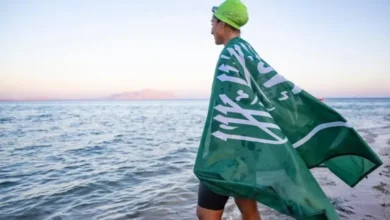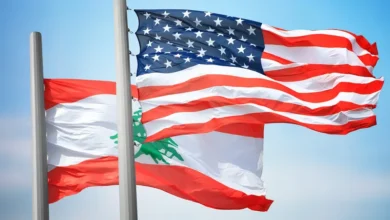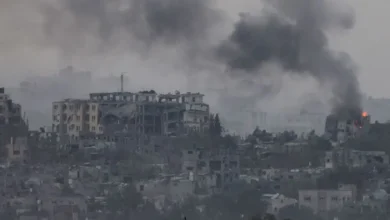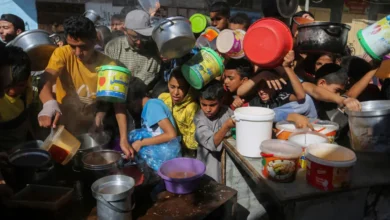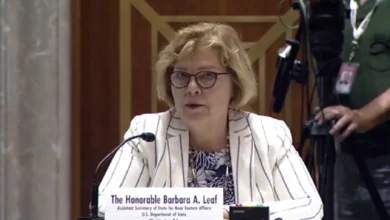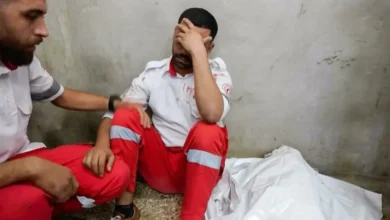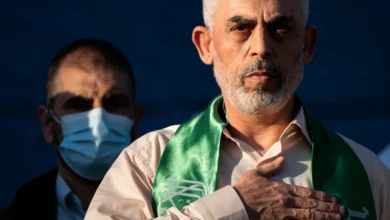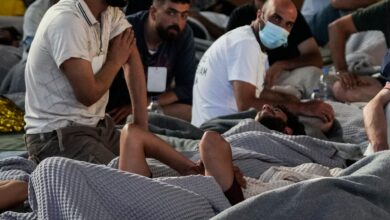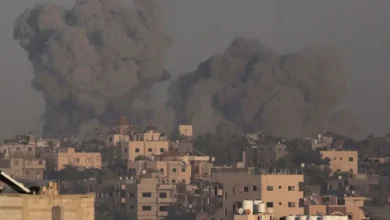‘What crime did they commit?’: Doctor learns of his family’s death in Israeli strike
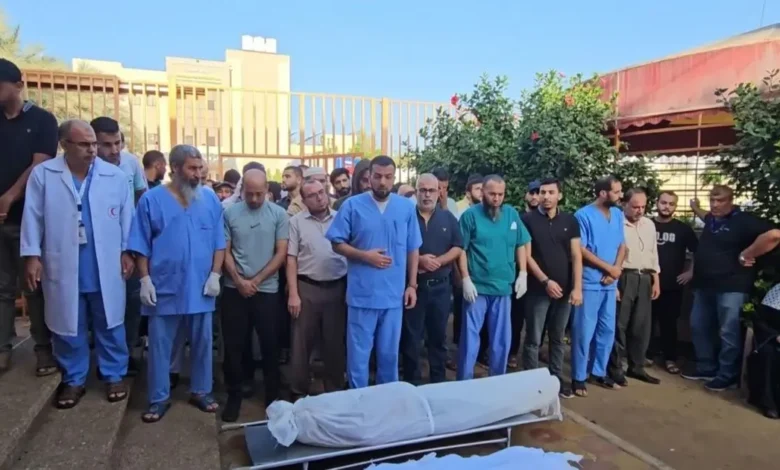
Iyad Shaqura, a doctor of pharmacy turned by war into an emergency physician, had become used to the flow of dead and wounded streaming into the hospital in Khan Yunis.
But on Monday evening, he fainted when he saw the bodies of his two children, his mother and his two brothers arrive at the emergency room.
His family had been killed by a strike that hit their home in Khan Yunis, in the south of the Gaza Strip.
The Palestinian territory is under heavy bombardment by Israel, which aims to destroy Hamas after the militant group’s bloody October 7 attack on southern Israel.
On Tuesday morning, his eyes filling with tears, Shaqura took a last look at his loved ones, draped in white shrouds and placed on the mortuary tables in the emergency room of Nasser Hospital, AFPTV footage showed.
Pointing at the bodies, one after the other, he listed their names: “My mother, Zeinab Abu Dayya, my brothers Mahmud and Hussein Shaqura, my sister Israa and her two children Nabil and Nur, and my two children, the apple of my eye, Abdelrahman, seven, and Omar, five”.
“I have five children, but he was my favorite,” said Shaqura, resting his forehead on the bloodied one of Abdelrahman.
His shroud and that of his brother were open at the face.
“What did they do to have tonnes of bombs and explosives dropped on their heads in their home?” he said, before adding with resignation, “God called them back to him like many other children before them.”
‘Triumph or be buried’
The most recent data published by the Palestinian health ministry in Gaza said that Israel’s bombing campaign had killed more than 10,300 people, including 4,237 children, since October 7.
The attack on southern Israel by Hamas, which triggered Israel’s retaliation, killed more than 1,400 people, according to Israeli officials, the majority civilians.
Shaqura is from a family of Palestinian refugees displaced from their land during the creation of the State of Israel in 1948.
Such refugees and their descendants account for about 80 percent of the 2.4 million people living in the Gaza Strip, UN figures show.
“If the enemy wants to hunt us again, we will tell them that God has promised us one of two things: either to triumph in our liberated lands or to be buried there,” said Shaqura, adding, “Now, I will bury my children and return to work”.
He then led the ritual funeral prayer in the hospital courtyard, with his colleagues and relatives stood upright behind him while the bodies of his family were laid out on stretchers before him.
Their corpses were then taken to the “martyr’s cemetery” of Khan Yunis, nearby.
In the cortege walking to the cemetery, Shaqura carried in his arms Abdelrahman, whom he kissed one last time on the head.

